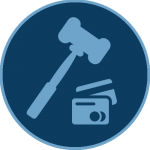Become Debt Free in Canada
In today’s fast-paced world, achieving financial stability and a debt-free future has become increasingly challenging. However, with the right financial planning and budgeting strategies, you can set yourself on the path to financial success. In this article, we will explore key steps and tips to help you create a solid financial plan for a debt-free future.
Setting Your Financial Goals
The first step in building a solid financial plan is setting clear and achievable financial goals. Whether it’s paying off existing debts, saving for a home, or securing your retirement, having well-defined objectives is crucial. When setting your financial goals, consider both short-term and long-term objectives.
- Identify Short-Term Goals: These goals typically involve immediate expenses or debt payments. For instance, paying off credit card debt or saving for a vacation. Financial planning for short-term goals ensures you stay on track in the short run.
- Plan for Long-Term Goals: Long-term goals include saving for retirement, buying a home, or funding your children’s education. Start early and consistently contribute to these goals to reap the benefits in the future.
Creating a Budgeting Strategy
Once you’ve established your financial goals, the next step is to create a budgeting strategy that aligns with your objectives. A well-structured budget ensures that you allocate your income wisely and have control over your spending.
- Track Your Income and Expenses: Begin by tracking your monthly income and expenses. This will give you a clear picture of where your money is going and where you can make adjustments.
- Categorize Your Expenses: Divide your expenses into categories such as housing, transportation, groceries, entertainment, and savings. This categorization helps identify areas where you can cut back.
- Set a Realistic Budget: Based on your income and expenses, set a realistic budget that allows you to save for your financial goals while covering essential expenses.
- Stick to Your Budget: The key to successful budgeting is discipline. Make an effort to stick to your budget, and if necessary, make adjustments as your financial situation changes.
Debt Management
One of the primary obstacles to achieving a debt-free future is existing debt. Effective debt management is essential to your financial plan.
- Prioritize High-Interest Debts: Start by paying off high-interest debts like credit cards. The interest on these debts can accumulate quickly and hinder your progress towards financial stability.
- Consolidate Debts: Consider consolidating multiple debts into a single loan with a lower interest rate. This can simplify your payments and reduce the overall interest you pay.
- Seek Professional Help: If you’re struggling with overwhelming debt, seek assistance from credit counseling services or consider debt consolidation options.
Building an Emergency Fund
An often-overlooked aspect of financial planning is creating an emergency fund. Having a financial cushion for unexpected expenses can prevent you from accumulating more debt in times of crisis.
- Save for Emergencies: Aim to build an emergency fund that covers at least three to six months’ worth of living expenses. This safety net will provide peace of mind and financial security.
Review and Adjust Your Plan
Financial planning is not a one-time task but an ongoing process. Regularly review your financial plan and make adjustments as needed. Life circumstances, income changes, and financial goals can all evolve over time.
- Annual Review: Conduct an annual review of your financial plan to ensure it remains aligned with your goals. Make adjustments as necessary.
- Celebrate Milestones: When you reach key milestones, celebrate your achievements. This can help you stay motivated and focused on your financial journey.
Take Action Today
Creating a solid financial plan for a debt-free future is achievable with commitment and the right strategies. Start by setting clear financial goals, creating a budget, and managing your debts. Building an emergency fund and regularly reviewing your plan will keep you on track.
For expert guidance and assistance in your financial planning journey, consider applying for Credit Dispute’s credit report error correction service. Our team can help you identify and resolve any credit report errors, ensuring your credit history accurately reflects your financial situation. Take the first step towards a debt-free future by applying online.
Don’t wait any longer – begin your journey towards financial stability and a debt-free future today!







